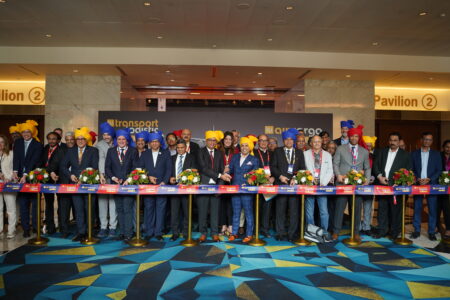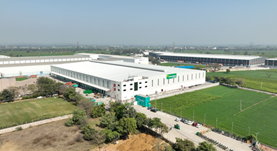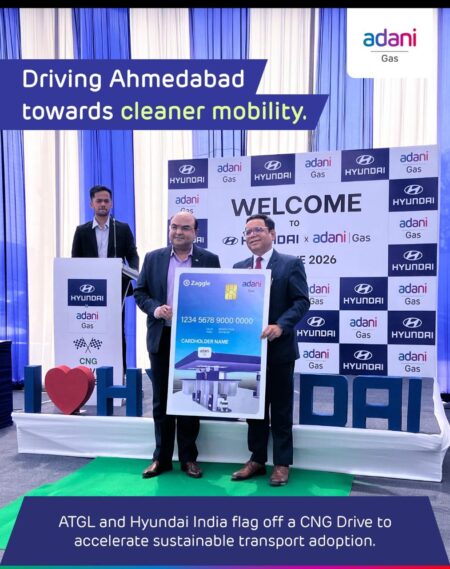As the Union Budget 2024-25 approaches, key players across various industries are voicing their expectations and aspirations for the forthcoming fiscal policies. These leaders emphasise the need for strategic measures that will drive growth, innovation, and sustainability in their respective sectors. From policy continuity and infrastructure development to technology adoption and environmental sustainability, their insights provide a comprehensive view of the changes they hope to see. Here’s a glimpse into the pre-budget expectations of prominent industry figures.
Vipin Vohra, Chairman, Continental Carriers
The logistics industry expects the newly formed government to reconsider the proposal for a permanent GST exemption on international transportation/freight services via air and ocean for export shipments. This exemption should also include ancillary services related to international transportation of goods, such as customs clearances, warehousing, storage, cargo handling, packing, and port/airport charges, to further streamline associated costs for exporters. As a global practice, GST is not charged on export shipments moving either by air or ocean. Since the GST is ultimately credited back to the exporter, the levy is not justified.
Currently, GST activities are decentralised across states, leading to varying queries from each state. Businesses with offices in multiple states expend considerable resources and manpower addressing these diverse requirements. Centralising GST operations with standardised queries, regardless of the state, is recommended to save taxpayers nationwide significant time and resources.
The implementation of the National Logistics Policy under the PM Gati Shakti National Master Plan and ‘Make in India’ schemes will enhance international cargo movement through airports. Presently, cargo terminals at international airports are heavily congested at peak times. This expected increase in cargo will further deteriorate the situation. The government may consider incentive-based proposals for private players to set up off-airport cargo handling locations near airports and industrial belts to ease the situation.
To achieve 10 MMT of annual cargo throughput by 2030, the commercial potential in Tier II and Tier III cities needs to be tapped, and cargo upliftment capacity from Indian airports needs to be augmented. The government should consider an ‘Open Sky Policy,’ extending permission for foreign cargo freighters to all Indian airports, not just the six major ones.
To reduce overall logistics costs, as envisaged in the National Logistics Policy, the government must ensure that the costs incurred by exporters/importers in moving their cargo are rationalised and simplified. Freight charges levied by transporters (airlines/shipping lines) and cargo terminal operators play a major role in determining the cost of the product.
The government should prioritise achieving a fully paperless cargo documentation process with minimal human interaction. All relevant agencies, organisations, airlines, and stakeholders must strictly adhere to this directive. The government must enforce and ensure compliance to streamline operations and enhance efficiency in the logistics sector.
Vineet Agarwal, MD, Transport Corporation of India
As we approach the Union Budget 2024-25 announcement, TCI is optimistic about the government’s commitment to bolstering the logistics sector. TCI remains committed to empower MSMEs with its seamless logistics solutions that streamline operations and open up new avenues for success in the remotest of India.
Emphasis on infrastructure development, streamlined regulations, workforce upskilling, and enhanced investment in technology will drive efficiency and sustainability. We look forward to policies that support innovation and ease of doing business, ultimately contributing to the nation’s economic resurgence.
Kami Viswanathan, President, FedEx, MEISA
In the forthcoming budget, FedEx looks forward to transformative measures to accelerate growth in the logistics sector and propel India towards its USD 5 trillion economy goal. We anticipate seeing significant investments throughout the industry in multi-modal connectivity, including advanced air cargo terminals and infrastructure enhancements to create seamless trade corridors, aligning with the Prime Minister’s Gati Shakti Plan and the National Logistics Policy.
We also anticipate a continued focus on trade facilitation, streamlining and digitising clearance processes, minimising delays and enhancing cargo movement efficiency. FedEx remains committed to collaborating with the government to advance these strategic initiatives and support India’s trade growth.
Gregory Goba Ble, Managing Director, UPS India
India stands at the cusp of a logistics revolution, and the upcoming Union Budget will play a defining role in shaping its course. Building upon the foundation established in the past few budgets, which included a significant investment for critical transport infrastructure projects to establish last and first-mile connectivity, is crucial.
This budget must continue its commitment to boosting the logistics sector, particularly for MSMEs. Providing these businesses with timely access to finance, cutting-edge technologies, and relevant training is essential for them to compete on a global scale. Furthermore, logistics companies are seeking to decrease regulatory costs. The government should promote the adoption of advanced technologies in logistics sector through incentives. This not only enhances the efficiency of logistics but also contributes significantly towards India’s logistics performance index.
We are optimistic that this budget will introduce further initiatives to create a more efficient and sustainable logistics ecosystem, ultimately driving India’s competitiveness at a global level.
Ketan Kulkarni, Chief Growth Officer, Allcargo Group
As India is aspiring to become a $7 trillion economy, the logistics industry is set to play the role of a growth catalyst which will usher in the new era of economic progress. For that, the logistics industry requires consistency in policy, technology and infrastructure-led reforms. It is extremely encouraging to note that the NDA government in its third consecutive term has emphasised on the continuity and stability in the decision-making and policy measures and we expect the reflection of that intent in the full Budget.
The full budget needs to continue with the infrastructure push to add momentum to the transformation-led growth. The logistics industry requires a holistic infrastructure development push to build a stronger distribution network and global value chain linkages. Along with infrastructure development, the budget should announce fiscal stimulus to boost the entrepreneurial ecosystem and create employment opportunities to drive consumption.
As the country aims to become carbon neutral by 2070, the full budget should propose measures to increase e-mobility and renewable energy adoption. The logistics industry expects incentives and policy support to adopt sustainable practices to accelerate the country’s progress towards a green economy.
There should be policy continuity in developing economic railway corridor programmes to boost rail freight share and reduce carbon emission as well as enhance operational and cost efficiency. A dedicated focus on sustainability will help the sector adopt green practices, reducing its carbon footprint and aligning with global environmental standards. The logistics industry is geared up to contribute to the ‘Viksit Bharat @2047’ mission.
Uday Sharma, Chief Commercial Officer, Allcargo Gati
The logistics subsector is undergoing numerous changes to address infrastructure and technology challenges. As the lifeline of the MSME sector, the logistics and supply chain industry plays a crucial role in efficiently delivering their products and enabling them to reach the market or their destination. MSMEs rely heavily on their third-party logistics providers to operate smoothly, as they often face limitations due to a lack of capital or resources.
The upcoming budget should create an environment where MSMEs can flourish with well-developed logistic infrastructures based on sustainable practices. We expect the budget to prioritise investments in infrastructure development, digitalization, and skill development, which will further empower MSMEs. Our commitment goes beyond providing logistics; we actively support programs that enhance operational efficiency and competitiveness for MSMEs. Through various initiatives like capacity-building workshops, digital transformation projects, and skill development programs, we strive to grow and sustain MSMEs.
Akash Gupta, Co-founder & CEO, Zypp Electric
To achieve net-zero carbon emissions, the government must focus on maintaining policy continuity. Inclusion in the priority lending scheme and reducing GST for EV services from 18 percent to 5 percent will accelerate EV-led delivery adoption. Recognizing last-mile delivery as a distinct sector under logistics policies is essential, given that one-third of shipments fall within this category.
Establishing industry standards, supporting gig delivery partners with tailored schemes, and implementing standard operating procedures (SOPs) will enhance efficiency and foster growth in this vital but often overlooked segment of the logistics industry. An extension of the existing EMPS scheme will result in better stakeholder sentiment and investor confidence.
With increased government support in driving localization to cut down costs, infrastructural advancements in terms of establishing a robust charging infrastructure will further aid in boosting customer awareness, focus on job creation will foster strong collaborations and necessitate substantive developments for the EV sector.
JB Singh, Director, MOVIN Express
As we look forward to Budget 2024, the logistics sector eagerly anticipates a roadmap emphasising consistent policy frameworks, technological advancements, and infrastructure enhancements. Initiatives like the National Logistics Policy and PM Gati Shakti are poised to streamline operations and enhance efficiency across the supply chain.
Simultaneously, investments in upskilling programs for the workforce and targeted support for MSMEs will strengthen competitiveness and sustainability. This integrated approach not only promises to propel India’s logistics industry towards greater resilience but also supports the nation’s ambitions for inclusive growth and global leadership in logistics innovation.
Ravi Goel, Chief Business Officer, RapidShyp
The e-commerce industry in India has changed the business landscape, increasing consumption by providing direct access to end-consumers and creating fresh job opportunities. In anticipation of the upcoming Union Budget, we look forward to measures that can strengthen ongoing efforts towards improving last-mile connectivity in the logistics sector. For D2C brands and small sellers driving the Indian economy, this is non-negotiable, as they will be key growth drivers for our economy.
The government’s steadfast backing through technology adoption, digitisation, innovative digital payment methods and local logistics infrastructure development has played a major role in boosting the logistics industry. It is anticipated that the new budget will continue these initiatives while ensuring the smooth integration of local and global value chains. By doing so, these are the aspects that will keep us going, help SMEs grow and contribute to the nation’s overall economic development.
Smitha Shetty, Regional Director, APAC, Achilles Information
India’s unwavering commitment to achieving Net Zero emissions by 2070, reinforced by the interim budget’s comprehensive sustainability strategy, is a beacon for the global green economy. Proactive initiatives like the viability gap funding for 1 GW of offshore wind energy capacity and the ‘Muft Bijli’ rooftop solarization scheme are not merely steps towards a cleaner future, but also catalysts for innovation and economic growth.
At Achilles, we’ve witnessed firsthand how the emphasis on ESG adoption across businesses of all sizes is enhancing India’s competitive edge, attracting responsible investment from around the world. The upcoming budget is a crucial opportunity to further solidify this momentum, bolstering India’s position as a global leader in sustainable development.











